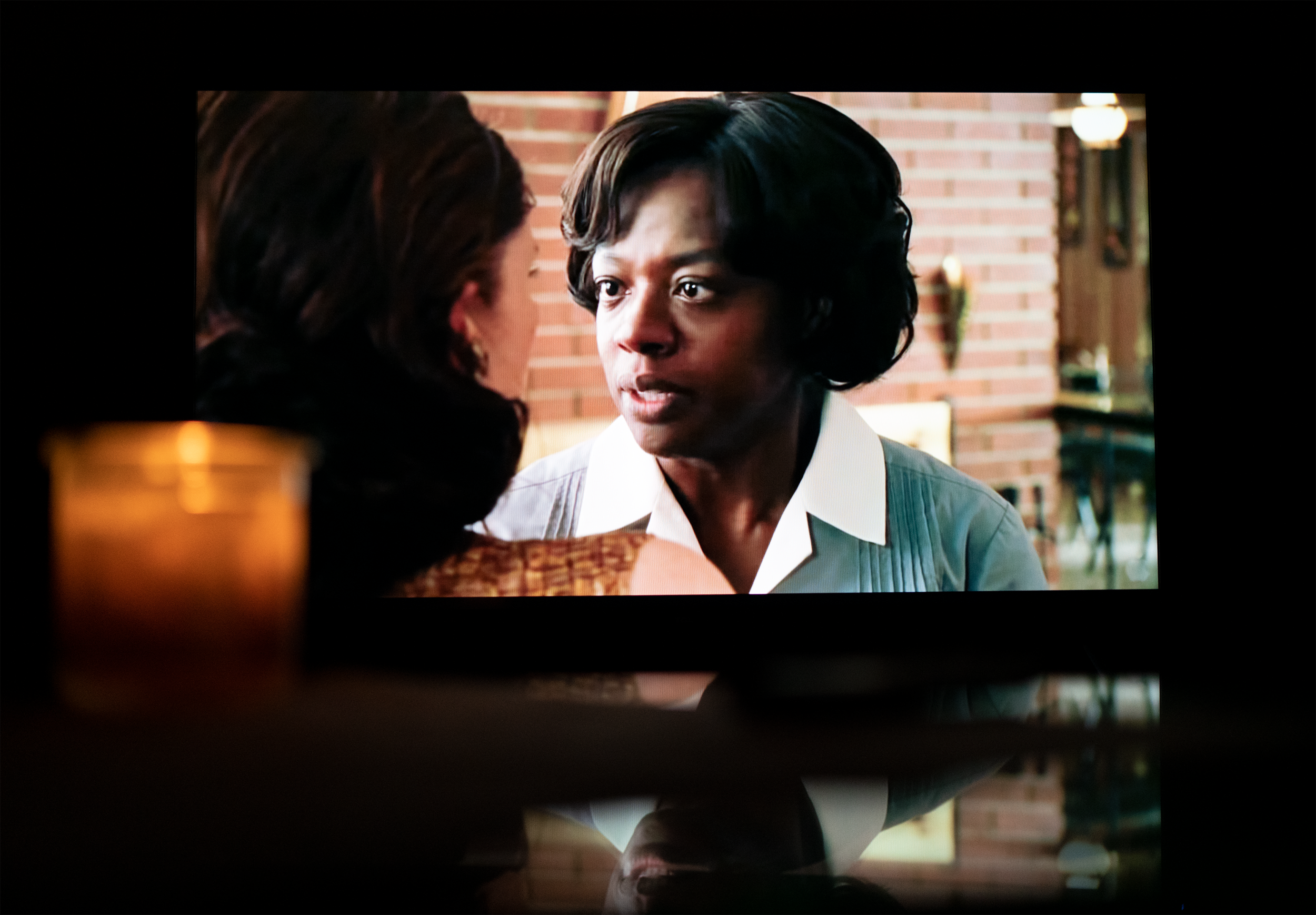Opinion | How Black films and stories can impactfully fully teach Black history
Director Tate Taylor’s “The Help” is one of several films integral to furthering education of Black history through cinema. DANIEL PEARSON, Photo Editor
Black films and TV shows can affect society in positive ways and in negative ways: the power of storytelling can be influential on individuals in expanding their basic knowledge of Black history. With that said, the impact of Black filmmakers, films and stories can’t be understated.
Some notable movies that touch on themes of racism, inferiority and the struggles of being Black in history include “The Help,” “Just Mercy,” “Hidden Figures,” “Selma” and many more.
I remember watching “The Help” for the first time in my U.S. history class in sixh grade when we were discussing slavery. After watching this movie at 12-years-old, I was so confused as to why this movie was widely regarded as impactful, because all I really saw was the movie displaying Black people being put down by white people.
Madison Welborn, sophomore film production major
As I got older and entered my high school years, I truly started to understand the power movies have and the influence it can have on society.
In my sophomore year of high school, the movie “The Hate U Give” was released. There is a scene in the film that epitomizes the theme of police brutality, where a Black man is shown getting killed by a white police officer, because the white police officer thought the Black male was reaching for a gun.
In reality, the Black male character was only grabbing a hairbrush. As the altercation ensued between the man and the officer, another character sat in the passenger seat, watching in horror.
As I watched this scene, I immediately felt tears slowly coming down my face. I saw the film in theaters with one of my non-Black friends, who heard me sniffling and asked me why I was crying. By the end of the movie, she started to understand the reason for my grief, as well as the film’s broader potential for societal impact. This experience marked one of the first times I can recall witnessing the power of storytelling really make a difference on people.
There have been so many different stories where Black people are portrayed as negative, aggressive and scary in the news and media, which harmfully alters how the Black community is perceived by individuals of other cultural backgrounds. The result is the internalization of implicit bias — a preconceived notion of certain qualities of an individual or particular social group — throughout the world.
Some goals Black filmmakers have is to not only teach Black history and inspire someone, but also to give non-Black people a little insight on what our community is like. Demonstrating the Black experience and how Black people interact with one another characterizes the personalities of us as individuals and reminds the world that we are humans as well.
Black filmmakers are trying to uplift the voices and images of Black people, disputing the stereotypes and negative manner in which the Black community is portrayed by some media outlets.
The Black community has been preaching these problems for years, and it finally feels like a breakthrough is occurring.
In quarantine, people were forced to sit in their homes and watch movies and television shows, allowing society plenty of time to digest the issues we face and the reality of it not changing. This period of unprecedented introspection gave background on and created an understanding of Black history.
Even though quarantine has come to an end, and we have returned to some version of “normalcy,” racism persists. It remains paramount to educate oneself about Black history, and show a willingness to listen to Black peers and all modern day issues faced by the Black community.
Overall, the ability storytelling has, and the powers movies have in shaping an understanding for society when discussing Black history is incredibly inspirational. Black cinema opened doors for Black people — not only in the entertainment industry but across the board in all areas of work.


